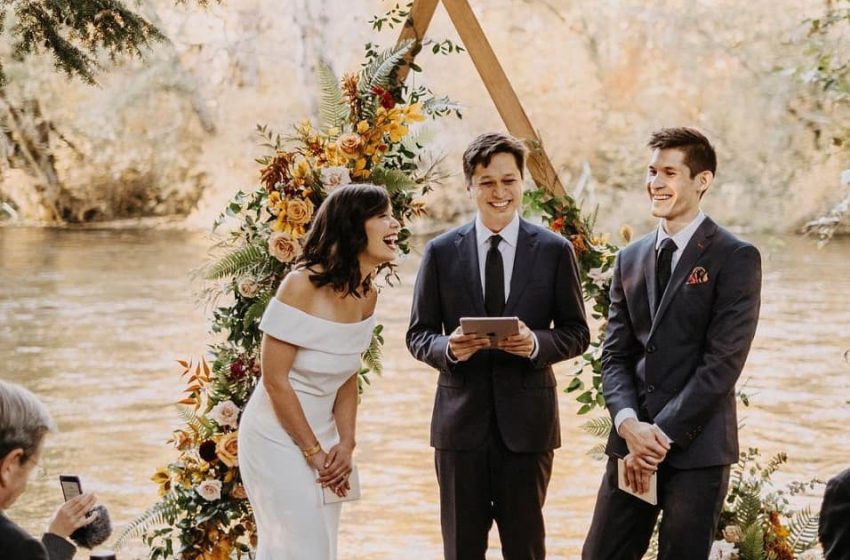The Role of a Wedding Ceremony Officiant : A Simple Guide

Planning a wedding is an exciting and personal experience. Every detail matters, from choosing the venue to selecting the right dress. One of the most significant decisions is selecting your wedding ceremony officiant in the USA.
The officiant plays a central role in ensuring your ceremony is meaningful, legal, and aligns with your personal beliefs. Whether you want a traditional, religious, or secular ceremony, understanding the role of a wedding officiant is essential for creating the perfect atmosphere for your big day.
Table of Contents
Wedding Ceremony Officiant in USA: Your Complete Guide
The Role of a Wedding Ceremony Officiant in the USA: A Simple Guide.
Wedding Ceremony Officiant in USA
Here, we break down the key responsibilities of a wedding ceremony officiant so you can confidently select the best one for your ceremony.
-
Legalizing Your Marriage
One of the officiant’s primary duties is ensuring your marriage is legally binding. This involves completing the marriage license, a requirement in all states. After the ceremony, the officiant will sign the marriage license and file it with the appropriate county or state office. Without this legal step, the law would not recognize your marriage.
It’s essential to check with your officiant to ensure they can perform weddings in your state. Only ordained religious leaders, judges, or justices of the peace are allowed to marry couples legally in some areas. In other states, officiants can become legally authorized through online ordination, which has become increasingly popular.
-
Personalizing the Ceremony
A skilled wedding officiant should also help make your ceremony reflect your personality and values. They can suggest vows, readings, rituals, and unique traditions. Some couples prefer a religious ceremony, while others prefer a secular approach. Many officiants are flexible enough to accommodate both ceremonies or even combine elements.
For example, include a family tradition, a favorite poem, or a custom like the unity candle or sand ceremony. The officiant can help craft a ceremony that feels special and unique to you as a couple.
-
Guiding the Flow of the Ceremony
The officiant is responsible for guiding the ceremony’s structure. They will help ensure that everything happens in the correct order and that all necessary elements are included. This might involve coordinating with the wedding planner or other vendors to ensure the ceremony flows smoothly.
The officiant also helps manage the timing of the ceremony, keeping things moving without rushing through essential moments. They ensure that each part of the ceremony, such as vows, ring exchange, and pronouncements, is conducted appropriately.
-
Delivering a Meaningful Ceremony
The officiant sets the tone of the ceremony. Their voice, energy, and approach can impact how the ceremony feels. Some couples prefer a more formal or traditional style, while others seek a relaxed, informal approach. The officiant should make you feel at ease while also maintaining professionalism.
A great officiant knows how to engage the couple and guests. They speak with clarity, warmth, and sincerity, making the ceremony intimate and memorable. Whether the ceremony is large or small, religious or secular, an officiant will set the right mood for the occasion.
-
Ensuring All Legal Requirements Are Met
In addition to completing the marriage license, the officiant must ensure that the ceremony complies with state-specific laws and regulations. Some states have specific requirements about the length of the ceremony, the presence of witnesses, and how the marriage license must be filed.
For example, in some states, couples must have at least one witness present during the ceremony. Specific wording in the vows or exchanging rings may be legally required in others. Your officiant should know these requirements and ensure everything is done correctly.
-
Handling Special Requests
Couples may have specific requests for their wedding ceremony. Some might include religious blessings, while others skip traditional prayers or scripture reading. The officiant’s role is to honor these requests while maintaining the flow of the ceremony.
Many officiants are happy to work with couples on custom vows, special rituals, and other personal touches. They can also guide making these elements meaningful and appropriate for the occasion. If you’re unsure about certain traditions, the officiant can help suggest alternatives that still meet your needs.
-
Providing Support Before and After the Ceremony
A wedding officiant’s role isn’t limited to just the ceremony itself. Many officiants offer pre-ceremony support, including meeting with the couple to discuss their preferences, explaining legal requirements, and reviewing the ceremony script. Some officiants also provide counseling or advice on how to navigate the wedding day.
After the ceremony, the officiant often helps finalize the marriage paperwork. This may include submitting the signed marriage license to the county clerk’s office to ensure the marriage is legally recorded. Sometimes, the officiant may also provide couples a marriage certificate to commemorate the event.
Summary!
Selecting a wedding ceremony officiant in the USA is a decision that significantly impacts the success of your wedding. The officiant makes your marriage legal and helps create a meaningful and personalized ceremony that reflects your love and values.
All Faith Ministry offers officiants across the USA if you are looking for a trusted and experienced wedding ceremony officiant. They provide flexible, personalized services to meet your needs, ensuring a memorable and legal ceremony on your big day. With All Faith Ministry, you can be confident that your wedding ceremony will be a beautiful and meaningful experience.

